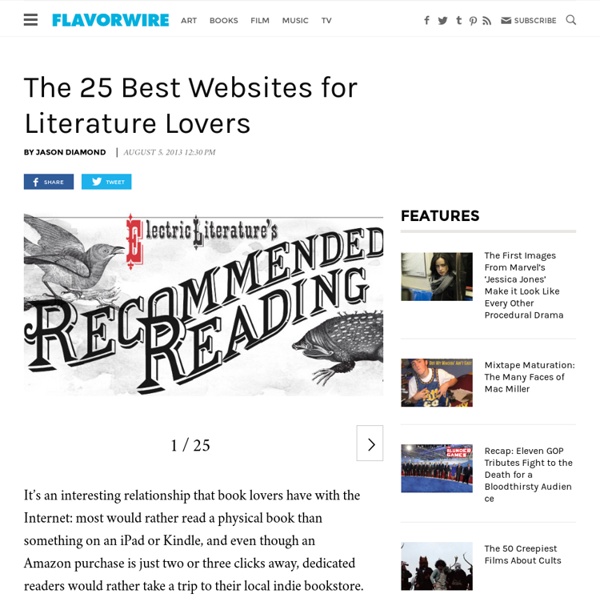Creative Writing Prompts
Ever since you were a child, you have burst into uncontrollable laugher every time you see a bare foot or bare feet. So far you’ve managed to suppress your hilarity at the sight of feet. Today, your boss has assigned you to cover the foot fashion show that is coming town this weekend. The... You are flipping through the channels on TV one Saturday, waiting for your pizza to be delivered. On the coffee table sits an open can of soda.
RA for All: library blogs
Right after ALA Annual every year there is always a big buzz in the library community. Yes, a huge number of librarians return to their work energized, sharing ideas, and making plans for future programs and services. But, there is also the business side to the annual meeting and that too can make some waves that ripple out to all librarians whether they went to the conference or not.
List of human emotions. List of feelings.
I put this list of emotions and feelings together some years ago for use in my counselling sessions. I was aware that men in particular (though of course not exclusively) often struggled to articulate their feelings. I thought it could help to give them a list of emotions and feelings to guide them towards identifying specifically what they felt. Prof. Simon Baron Cohen, in his book “The Essential Difference”, talks about 'empathising' brains and 'systemising' brains.
Book Reviews, Author Interviews, Book Blogs
Donald Harstad worked for 26 years as deputy sheriff and chief investigator for the police department of Clayton County, Iowa. Harstad transforms those experiences into thrilling mysteries with his popular Carl Houseman series. The sixth in the series, November Rain, finds Houseman far from his usual heartland setting, as he travels to the UK to consult on a kidnapping case—and to protect his own daughter. In a guest post, Harstad shares a bit of the real-life inspiration behind November Rain.
Emotional Insecurity – Cause, Aftermath and How to Get Rid of It - Sparkonit
Emotional Insecurity maybe defined as a feeling of unease which is triggered by perceiving oneself to be worthless, unloved or not good enough. Emotional insecurity is mostly a big part of some mental disorders like Borderline Personality Disorder and Narcissistic Personality Disorder, which often results in low self-esteem and at times in too high self-esteem that manifests itself as arrogance or a sense of superiority. An emotionally insecure person is pessimistic, sometimes antisocial or suffers from social anxiety, body dysmorphia, self-centeredness among other emotional states.
82 book club books
No matter that it takes forever for me to finish a book lately, I’m always adding to my list of books to read. Recently, a friend (thanks Jamie! Shout out!) shared that she carries her notated book club list with her at all times in her bag so that any chance she has to visit a book store, she has her go-to list with her. Since sharing her list with me last month I’ve pulled it out at least a half dozen times to share with others.
Physical Descriptions - List of Hair Colors
Hair Color List (Note: an updated and expanded version of this list appears in my 15K-word book How to Describe Hair and Skin. See below.) [First, my profound apologies to the vast majority of readers who don't steal content, but I have to state the following. This article and all content on this website belongs to Val Kovalin, copyright © Obsidianbookshelf.com, except where noted.
Book reviews: Find the best new books
{*style:<ul>*} {*style:<li>*} {*style:<br>*}{*style:<b>*}Harry's Trees{*style:</b>*}{*style:<br>*} by Jon Cohen{*style:<br>*}What a dazzlingly yet wonderful cast of characters we meet in Harry’s Trees by Jon Cohen. The one thing united them is grief and loss. A widow loses her husband to a ...{*style:<br>*} {*style:<a href=' more{*style:</a>*} {*style:</li>*} {*style:<li>*} {*style:<br>*}{*style:<b>*}Don't Look Back: An Inspector Sejer Mystery{*style:</b>*}{*style:<br>*} by Karin Fossum{*style:<br>*}A friend recommended this mystery to me and said she had just discovered Norwegian author Karin Fossum. This book is in a series of Inspector Sejer mysteries. Now I'm ...
Cheat Sheets for Writing Body Language
Translate emotions into written body language We are always told to use body language in our writing. Sometimes, it's easier said than written. I decided to create these cheat sheets to help you show a character's state of mind. Obviously, a character may exhibit a number of these behaviours.
EBSCOhost
Latest News & Events Latest Articles Technology & Services Discovery & Services
30 Tips For Writing a Book in 30 Days WritersDigest.com
Sometimes it’s a lone writer who’s been putting off a story idea for too long, and decides it’s now or never. Sometimes it’s a pair or a group determined to find out what they can achieve by sharing self-imposed deadlines and strong pots of coffee. Sometimes it’s peer pressure or curiosity about National Novel Writing Month (NaNoWriMo.org), that challenge that rallies ever-increasing numbers of writers around the globe every November to band together in pursuit of a 50,000-word “win.” This article is by Jessica Strawser, editor of Writer’s Digest. For more great writing advice, follow her on Twitter @JessicaStrawser.



